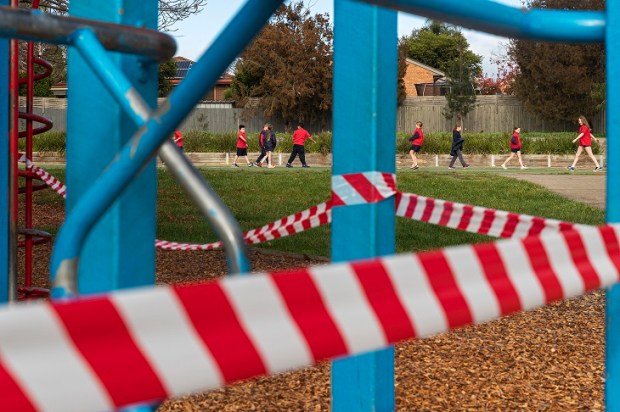My father had just been diagnosed with terminal cancer. A plan was formed with his local doctor. I was supplied with the necessary documentation and test results and set the task to take my father to the city hospital as the nearby regional hospital lacked the necessary facilities.
After a few hours of waiting in emergency, we were seen by a friendly nurse who exuded confidence and capability. She treated my father in a caring manner and entered the supplied information into a computer screen on wheels. I was encouraged by the use of technology to improve the accuracy of and efficiency of patient information. How wrong I was. Over the next few hours, in a scene reminiscent of Groundhog Day, we would enter the same information into facsimile terminals again, and again, and again.
Despite my father being a decade from receiving a personalised letter from the King and being impacted by cancer, he had established a routine he dutifully followed at home each day. We met with him most days and he was able to walk distances and traverse obstacles. It was why the bed at the back of triage perplexed me, drawing him in like the swirling vortex of a sink sucks in a hapless bug. It was as if a phoenix appeared and raised them both together as one being: bed-man. The bed’s invisible tentacles wrapped themselves around him rendering him immobile and helpless.
It was a question I asked medical staff several times during the ensuing days. Why do sprightly, independent people become catatonic and unable to care for themselves when introduced to the clinically sterile holding cell on wheels? Staff concurred that they had witnessed the same thing repeatedly but offered no explanation. Doctors and nurses agreed that it would be beneficial for my father to move, walk, and do the types of things he did prior to arriving.
My father survived the guns of war. As a boy, he guided his mother and sister through the perils of battle to safety, but now felt constrained and defeated by a bed. With coaxing he propped himself up on his bony but surprisingly strong arms, he pivoted and twisted off the bed and onto his feet, pausing momentarily to get his bearings. He gripped the staff on wheels holding his IV line and with some support made his way down the corridor and to the toilet. Further encouragement emboldened him to take care of himself. That was all he needed. He returned under his own steam and to the father I had known before his capture. If it wasn’t the staff who were causing his eyes to dim, what was it? It wasn’t the medication or technology; his IV line added the necessary fluid to rehydrate him. So, what was it?
The answer was revealed shortly after. A nurse came running, ‘Did he use the bottle?’ ‘What?’ I asked. ‘He has to use the bottle so we can measure his fluid discharge. This means he has to urinate while in bed.’ These statements continued over the coming days. Each time I left my father overnight I would come back to find him replaced by some foreign, paranoid, angry gargoyle who gripped the sheets with the venom of a constrictor wrapping itself around its prey. Each day I coaxed the beast from under the sheets and watched him transform into human form. The movement gave him strength, satisfaction, and normalcy. It switched his brain on and restored his dignity. These important aspects are what makes us human but appear to be secondary to the necessity of hospital procedures. Don’t get me wrong, I understand the importance of hydration but emotionally manipulating someone to prioritise process over actions which genuinely help seems misguided to me.
As a culture, we are overly compliant. We are exceedingly trusting of the omnipotence of the white lab coat like some curiosity from a Milgram’s experiment. My father dutifully obeyed the smallest of suggestions from medical staff. He stayed fixed to the bed, relieving himself in the toilet-less cell, diligently obeying all commandments ordained from on high. It was a self-fulfilling prophecy. He followed the ‘stay in bed’ orders, his gaze became vacant, and he refused to drink or eat, beckoning dehydration and lethargy. This was in stark contrast to the man I saw when self-sufficiency was encouraged. The more energy my father expended, the more energy he had and the brighter his eyes lit up.
He had now been in hospital for five days awaiting his procedure. The delay resulted from a decision to allow time to cleanse the prescribed blood thinner from his body. I have no idea what increased risk this caused, it was just something we were told had to be done. I have no reason to doubt the veracity of this but every day longer my father stayed in hospital posed an existential threat. Yet another procedure set to snare its unsuspecting victim. I was informed one morning that he had fallen over. As if this was something which had never happened to a 90-year-old. The consequence was swift and he was ordered back to bed for the rest of the day. By the time I arrived, my father had been replaced by the sheet-clutching gargoyle. I looked downcast at the scene. His independence had gone and had been replaced by a seat that had transformed itself into a toilet. There was no dignity in this, not for a man who only hours before had been roaming the corridors. Taking my father back to bed after his fall may have been the right decision but it makes me wonder how the doctor did the cost-benefit analysis for the patient justifying this course of action. It may well be that staff were concerned about legal exposure. The fact that I had accepted responsibility for any accidents may have come as little reassurance.
The white lab-coated medicine man has a lot to contribute to our health. My father would have died years earlier had their wizardry not been available. To hold anyone as infallible, however, is a mistake. No doctor is omniscient and can truly understand the consequences to the patient of isolation. For my father’s sins, he complied. He seemed under a spell I could not break. I could not convince the gargoyle to leave us in peace.
It was of no surprise that the doctors expressed concern that my father was not drinking post his successful procedure. He may still pull through, he has faced tougher challenges in his long life, but he is a shadow of his former self and one wonders what fate will befall him.
I now understand the term patient-centric care. Our medical systems are supposed to help patients get well but that is not what we have. We have commodity-based sick care. People are not identical. Hard numerical measures are of use but should not be the final determiner of treatment. The culture of bed zombies is detrimental to health, quality of life and wellbeing. If you can’t walk a mile, maybe you can walk a metre. If you can’t walk a metre, maybe you can make it to the nearest chair. Do whatever you can and don’t treat anyone as if they are God.

























